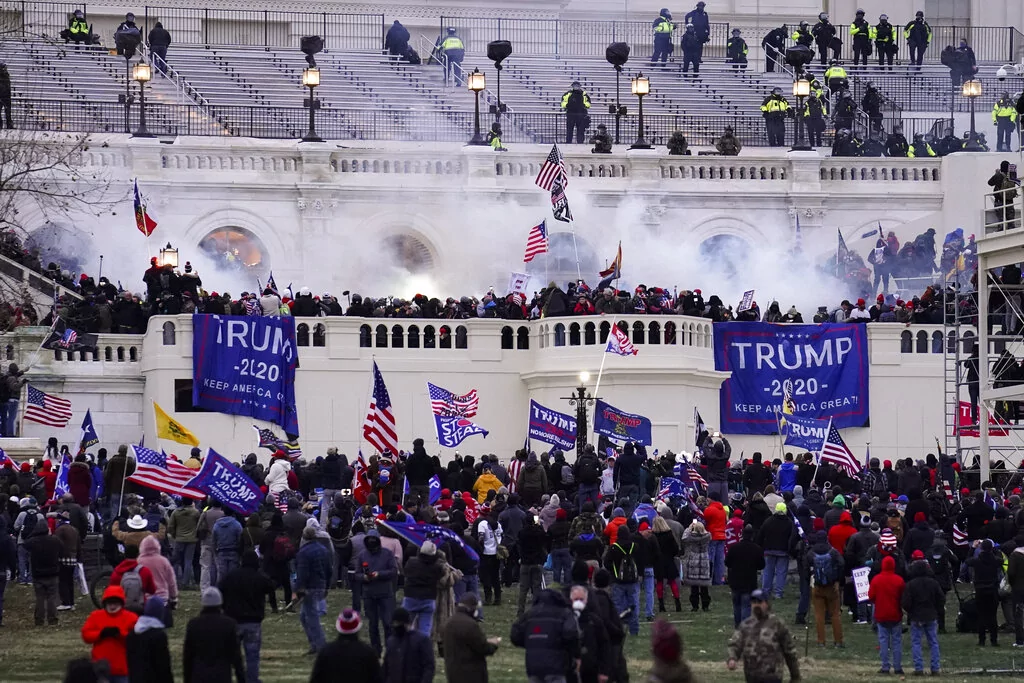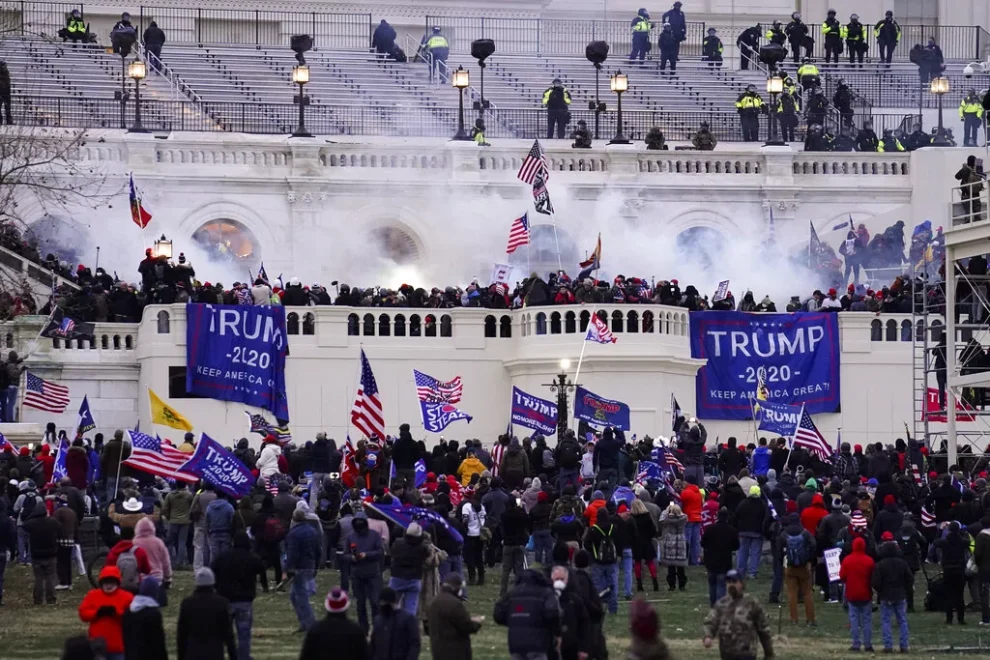EXCLUSIVE — Rep. Matt Gaetz (R-FL) on Tuesday will introduce a bill that aims to protect Jan. 6 Capitol riot defendants from retaliation by federal prosecutors when seeking petitions for resentencing.
The bill “will provide significant relief for January 6th defendants and ensure federal prosecutors stop aggressively pursuing charges if defendants petition for resentencing,” Gaetz told the Washington Examiner. “Additionally, it will ensure that justice is served fairly, balancing the need for accountability with the protection of individual rights.”

Gaetz is slated to introduce the new legislation known as the Resentencing Integrity Act of 2024 as Federal Bureau of Prisons Director Colette Peters testifies before the House Judiciary Committee beginning at 10 a.m.
Gaetz’s move comes in the wake of the Supreme Court’s decision in Fischer v. United States, which narrowed the scope of Section 1512(c)(2), a law that bars obstruction of an official proceeding. The justices ruled in a 6-3 decision that the statute applies only to evidence tampering. Before this landmark ruling, officials from President Joe Biden’s Department of Justice threatened to seek additional jail time for people seeking new sentences after their initial ones were deemed illegal.
The proposed legislation would require courts to credit time defendants have already served toward any new sentence, capping this credit at 10 years. It comes as the DOJ has been signaling in court filings that it is exploring other means to tack on additional charges if a defendant’s case qualifies for a resentencing in light of Fischer.
There were around 259 defendants from the Capitol attack facing the obstruction charge when the Supreme Court narrowed how 1512(c)(2) can be applied, according to DOJ records. Among those defendants are five alleged members of the Proud Boys group, including Arthur Jackman, Edward George Jr., Paul Rae, and the father-and-son pair Kevin and Nate Tuck.
In a court filing last Monday, prosecutors said each defendant in that group of five has been offered a plea deal that does not include the obstruction charge. But if they do not take the deal, DOJ prosecutors have vowed to dismiss the charge and take the defendants to trial on other alleged crimes.
The DOJ has argued in court filings the agency is still “evaluating” the impacts of Fischer for other defendants but has maintained the ruling did not reject the application of 1512(c)(2) to Jan. 6 prosecutions.
The ruling held that the “government must establish that the defendant impaired the availability or integrity for use in an official proceeding of records, documents, objects, or other things used in the proceeding — such as witness testimony or intangible information — or attempted to do so,” U.S. Attorney Matthew Graves submitted in the case of the five Proud Boys defendants.
The introduction of Gaetz’s bill coincides with growing scrutiny of the BOP and its leadership. House Republicans in May demanded testimony from Peters following her refusal to allow Congress to speak with former Trump trade adviser Peter Navarro, who was recently released from prison after being sentenced to prison for four months for defying a subpoena from the now-defunct Jan. 6 committee.
CLICK HERE TO READ MORE FROM THE WASHINGTON EXAMINER
“I’ve been trying for five weeks to be able to interview Mr. Navarro,” Gaetz said in May while Navarro was still in prison. “And there are provisions that ought to allow this, and I was informed directly by Director Peters that the request would be denied because Peter Navarro is ‘too notorious’ to be interviewed by a member of Congress.”
As the Judiciary Committee prepares to hear Peters’s testimony, Gaetz’s Resentencing Integrity Act of 2024 represents a significant legislative effort to address perceived injustices within the federal sentencing system, particularly for those involved in the Jan. 6 events. The bill aims to ensure that any resentencing process is conducted fairly and without undue influence or retaliation from federal prosecutors.
Read the bill here:
GAETZ_236_xml[1] by Kaelan Deese on Scribd
























